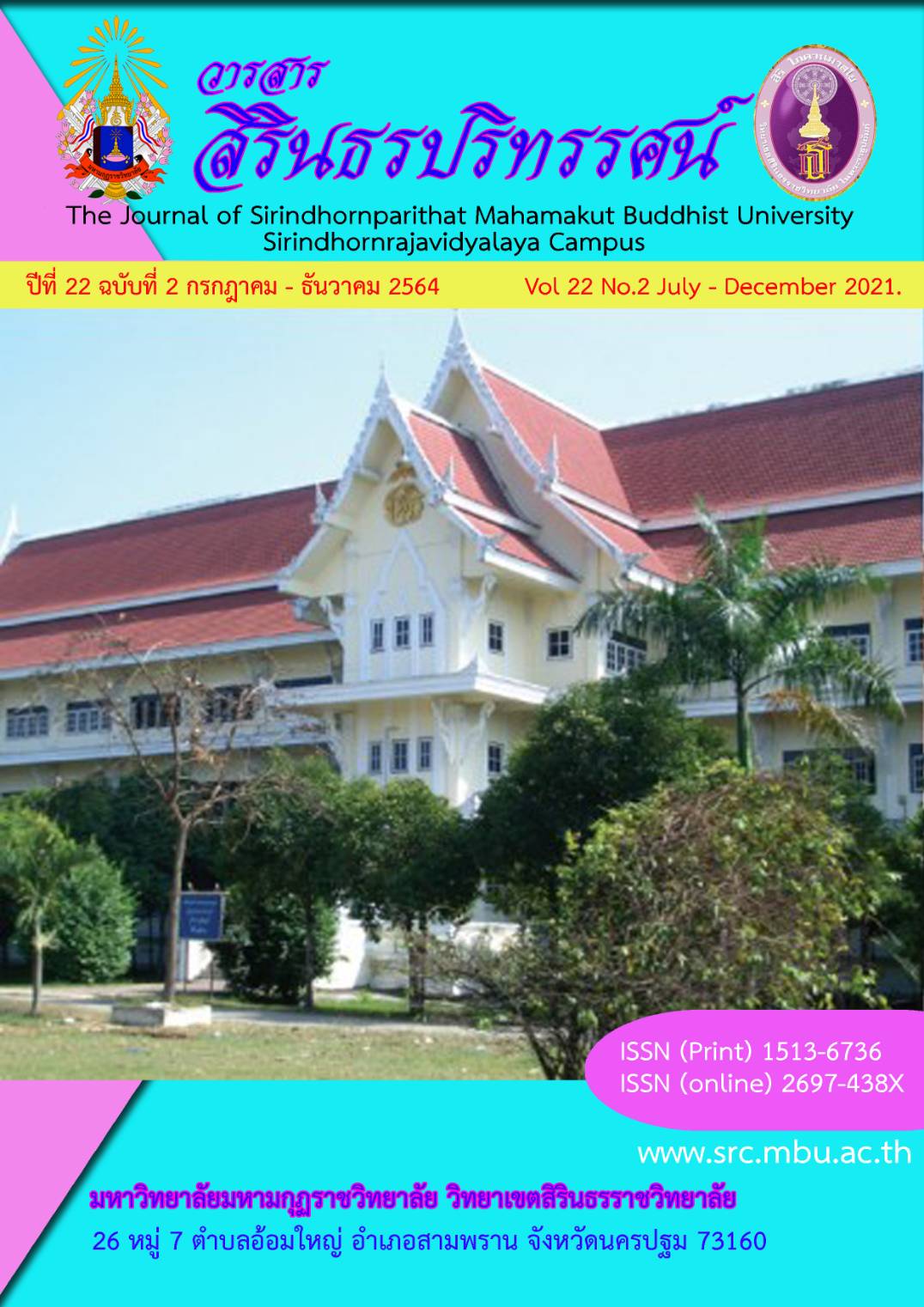Effectiveness of the student morality project management of primary schools in Ratchaburi province
Keywords:
project management, the student morality, primary schoolsAbstract
The purposes of this research were to study. 1) Effectiveness of the student morality project management according to the national strategy of primary schools in Ratchaburi province 2) Compare effectiveness of the student morality project management according to the national strategy of primary schools in Ratchaburi province. The samples were 60 administrators and 327 teachers. Total 387 persons. The research instrument was a questionnaire. It has validity between 0.80-1.0 and reliability has .873. The statistics used for analysis were frequencies, percentage, mean, standard deviation, ONE WAY ANNOVA, Test the difference with f-test. When differences are found make double comparisons with Scheffe'.
The research findings were as follows:
1. Effectiveness of student moral and ethical project management in primary schools of Ratchaburi province, in overall 3 groups at a high level. When classified by each side at high level and in descending order, it is the context of the school, Inputs, Process, and production. The overall effects at a moderate level with a positive effect at a high level. The negative effects at a low level. The same were true for all groups.
2. Effectiveness of student moral and ethical project management in primary schools of Ratchaburi province. The group no 1, group no 2 and group no 3 were different and significant at the .001 and check was performed with a Scheffe'. The results were as follows:
2.1 The effectiveness of student moral and ethical project management in primary schools of Ratchaburi province. Group no 1 and Group no 2 were not different, Group no 2 and Group no 3 were not different but Group no 1 and Group no 3 were different and significant at the .001.
References
ชฎาพร เสนเผือก. (2560). การประเมินโครงการพัฒนาคุณธรรม จริยธรรมนักเรียน ตามแนว การดำเนินงานโรงเรียนคุณธรรม โรงเรียนวัดปากจ่า. ปัตตานี: สำนักงานเขตพื้นที่การศึกษาประถมศึกษาปัตตานี เขต 2.
ธีรวุฒิ เอกะกุล. (2553). ระเบียบวิธีวิจัยทางพฤติกรรมศาสตร์และสังคมศาสตร์. อุบลราชธานี: มหาวิทยาลัยราชภัฏอุบลราชธานี.
นฤมล วิทยาวุฒิรัตน. (2561). การประเมินโครงการพัฒนาคุณธรรมจริยธรรมในโรงเรียนคลองเมืองพิทยาคม. Journal of Educational Technology and Communications Faculty of Education Mahasarakham University. Vol 2 No 4 January - April 2019
เมวิกา สุขะวิทะ. (2560). การประเมินโครงการการดา เนินงานโรงเรียนวิถีพุทธ โรงเรียนวัดเนินพระ (ทรงบัณฑิตย์ราษฎร์รังสรรค์) สังกัดสำนักงานเขตพื้นที่การศึกษาประถมศึกษาระยอง เขต 1. ระยอง: สำนักงานเขตพื้นที่การศึกษาประถมศึกษาระยอง เขต 1.
สมพร เพชรประพันธ์. (2562). การประเมินโครงการส่งเสริมคุณธรรม จริยธรรมและคุณลักษณะอันพึงประสงค์ของนักเรียนโรงเรียนบ้านดินแดงน้อย. กระบี่: สำนักงานเขตพื้นที่การศึกษาประถมศึกษากระบี่.
สายสมร ส่งศรี. (2562). การประเมินโครงการพัฒนาผู้เรียนให้มีคุณธรรม จริยธรรม และคุณลักษณะอันพึงประสงค์ ของนักเรียนโรงเรียนบ้านศรีทอง. นครสวรรค์: สังกัดสำนักงานเขตพื้นที่การศึกษาประถมศึกษานครสวรรค์ เขต 2
สุนทรี ศรีนวล (2561). รายงานการประเมินโครงการส่งเสริมคุณธรรมจริยธรรมในสถานศึกษาของโรงเรียนเทศบาลวัดละหาร สังกัดเทศบาลเมืองบางบัวทอง อำเภอบางบัวทอง จังหวัดนนทบุรี. นนทบุรี: เทศบาลเมืองบางบัวทอง.
สำนักนายกรัฐมนตรี. (2559). แผนพัฒนาเศรษฐกิจและสังคมแห่งชาติ ฉบับที่ 12 (พ.ศ. 2560–2565). กรุงเทพมหานคร: สำนักงานคณะกรรมการพัฒนาการเศรษฐกิจและ
Cochran, W.G. (1977). Sampling Techniques. 3d ed. New York: John Wiley and Sons Inc.
Cronbach, Lee. J. (1990). Essentials of Psychology Testing. 5th ed. New York: Harper Collins Publishers Inc.
Stufflebeam, Daniel L. (1971). The Relevance of the CIPP Evaluation Model for Educational Accountability. Atlantic City, N.J.
Downloads
Published
Issue
Section
License
Copyright (c) 2022 Mahamakut Buddhist University

This work is licensed under a Creative Commons Attribution-NonCommercial-NoDerivatives 4.0 International License.
บทความที่ได้รับการตีพิมพ์เป็นลิขสิทธิ์ของ มหาวิทยาลัยมหามกุฏราชวิทยาลัย วิทยาเขตสิรินธรราชวิทยาลัย
ข้อความที่ปรากฏในบทความแต่ละเรื่องในวารสารวิชาการเล่มนี้เป็นความคิดเห็นส่วนตัวของผู้เขียนแต่ละท่านไม่เกี่ยวข้องกับหาวิทยาลัยมหามกุฏราชวิทยาลัย วิทยาเขตสิรินธรราชวิทยาลัย และคณาจารย์ท่านอื่นๆในมหาวิทยาลัยฯ แต่อย่างใด ความรับผิดชอบองค์ประกอบทั้งหมดของบทความแต่ละเรื่องเป็นของผู้เขียนแต่ละท่าน หากมีความผิดพลาดใดๆ ผู้เขียนแต่ละท่านจะรับผิดชอบบทความของตนเองแต่ผู้เดียว




